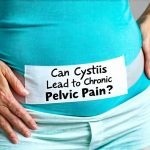Interstitial Cystitis (IC), also known as Bladder Pain Syndrome (BPS), is a chronic condition characterized by bladder pain, urinary frequency, and urgency. It’s often a debilitating illness that significantly impacts quality of life, and its causes remain complex and not fully understood. Many individuals living with IC report symptom fluctuations—times when the pain intensifies or subsides seemingly without clear reason. This leads to frequent questioning about triggers and contributing factors, leading many to wonder if hormonal changes play a role in their experience. Understanding the potential link between hormones and IC is crucial for both managing symptoms and exploring possible avenues for treatment, though it’s important to approach this topic with nuance given the current state of research.
The relationship isn’t straightforward; it’s not simply a case of “hormones cause IC.” Instead, hormonal shifts appear to influence symptom severity in some individuals, potentially exacerbating existing bladder irritation or altering pain perception. This is particularly noticeable in women, due to the cyclical nature of female hormones and the higher prevalence of IC in this demographic. However, men also experience IC, and hormone imbalances can affect them too. Exploring these connections requires examining how different hormonal systems interact with the body’s inflammatory responses, nervous system sensitivity, and overall immune function – all factors believed to be involved in the pathogenesis of IC. It’s a complex interplay that necessitates careful consideration.
The Role of Estrogen and Progesterone
Estrogen and progesterone are key players in the female reproductive system, but their influence extends far beyond reproduction. They impact various bodily functions, including immune regulation, nervous system sensitivity, and even the bladder itself. There’s growing evidence suggesting that fluctuations in these hormones can significantly affect IC symptoms for some women. – Estrogen receptors have been found in bladder tissue, indicating a direct interaction between estrogen and bladder function. – Changes in estrogen levels can impact the permeability of the bladder lining, potentially making it more susceptible to irritants. – Progesterone has anti-inflammatory properties that might offer some protective effect, but its fluctuating levels throughout the menstrual cycle could also contribute to symptom variability.
The cyclical nature of female hormones means that symptoms often wax and wane with the menstrual cycle. Many women report increased pain during menstruation or ovulation, periods associated with significant hormonal shifts. Postmenopausal women sometimes experience a lessening of IC symptoms, although this isn’t always the case, and other factors can come into play. Hormone replacement therapy (HRT) is a complex topic in relation to IC; while it might alleviate some symptoms for certain individuals by restoring estrogen levels, others report exacerbation of their condition with HRT, highlighting the highly individual nature of this relationship. It’s vital to discuss any potential hormonal interventions with a healthcare professional familiar with IC and hormone management.
The impact of these hormones isn’t solely about direct effects on the bladder; they also influence pain perception. Estrogen can modulate the nervous system’s sensitivity to pain signals, potentially lowering the threshold for pain activation or amplifying existing pain sensations. This means that even minor hormonal fluctuations could lead to a noticeable increase in perceived pain levels. Furthermore, estrogen affects inflammatory processes. Imbalances may contribute to chronic inflammation, which is believed to play a role in IC development and symptom persistence.
Thyroid Hormones & IC
The thyroid gland produces hormones that regulate metabolism, energy levels, and overall body function. While the connection between thyroid hormones and IC isn’t as extensively studied as estrogen/progesterone, there’s mounting evidence suggesting an association. – Hypothyroidism (underactive thyroid) is often linked to chronic pain conditions, including fibromyalgia which frequently co-occurs with IC. – Thyroid disorders can affect immune function, potentially exacerbating the inflammatory processes thought to contribute to IC symptoms. – Changes in thyroid hormone levels can impact nervous system sensitivity and pain perception, similar to estrogen’s effects.
Thyroid dysfunction can lead to fatigue, muscle weakness, and cognitive impairment, all of which can significantly impact quality of life for individuals with chronic conditions like IC. The overlap between hypothyroidism symptoms and IC symptoms can make diagnosis challenging; it’s essential to rule out thyroid issues as part of a comprehensive evaluation. Addressing underlying thyroid imbalances may help manage some aspects of the condition, but it’s crucial to remember that IC is multi-faceted and requires a holistic approach.
A key aspect of understanding this link is recognizing that thyroid hormones influence the nervous system’s ability to regulate pain signals. An underactive thyroid can lead to increased sensitivity to pain, making even mild bladder irritation feel more intense. Additionally, hypothyroidism can affect gut health, which plays an increasingly recognized role in immune function and inflammation; a compromised gut microbiome may contribute to IC symptom flares.
Cortisol & the Stress Response
Cortisol, often called the “stress hormone,” is produced by the adrenal glands and plays a vital role in regulating the body’s response to stress. Chronic stress can lead to dysregulation of the hypothalamic-pituitary-adrenal (HPA) axis, resulting in either chronically elevated or suppressed cortisol levels. Both scenarios can potentially worsen IC symptoms. – Chronic stress weakens the immune system, making individuals more susceptible to inflammation and flare-ups. – Cortisol affects pain perception; prolonged stress can lower pain thresholds and amplify sensations. – HPA axis dysregulation is common in chronic pain conditions, including IC.
The impact of cortisol on IC isn’t simply about stress itself; it’s about the body’s inability to effectively manage stress over time. When the HPA axis is constantly activated due to chronic stressors, it can lead to adrenal fatigue and impaired cortisol production. This leaves the body vulnerable to inflammation and pain. Conversely, chronically high cortisol levels can also disrupt immune function and contribute to bladder irritation. Managing stress through techniques like mindfulness, yoga, or meditation might help regulate cortisol levels and potentially reduce IC symptoms for some individuals.
It’s important to note that the relationship between cortisol and IC is complex and bidirectional. IC itself can be a significant source of stress, creating a vicious cycle where pain leads to increased cortisol levels, which then exacerbate the pain. Breaking this cycle requires addressing both the physical symptoms of IC and the psychological stressors contributing to it. Seeking support from therapists specializing in chronic pain management can be invaluable for developing coping mechanisms and reducing stress levels.
DHEA & Androgens
Dehydroepiandrosterone (DHEA) is a hormone produced by the adrenal glands that serves as a precursor to other hormones, including testosterone and estrogen. While often considered an androgen, its role extends beyond simply masculinizing effects. Emerging research suggests that DHEA may have immunomodulatory properties and could potentially influence IC symptoms in some individuals. – Low levels of DHEA have been observed in some patients with chronic pain conditions. – DHEA supplementation may help improve immune function and reduce inflammation in certain cases, but its use for IC is still under investigation. – Androgen imbalances can affect bladder function and contribute to urinary symptoms.
The connection between DHEA and IC is largely speculative at this point, requiring further research to fully understand the mechanisms involved. However, some studies suggest that DHEA supplementation might help reduce pain and improve overall well-being in individuals with chronic pelvic pain conditions, which often overlap with IC. It’s crucial to emphasize that self-treating with DHEA is not recommended; it can have significant side effects, especially for women, and should only be considered under the guidance of a qualified healthcare professional.
The role of other androgens, such as testosterone, in IC is also being explored. While traditionally thought to be primarily male hormones, androgens are present in both men and women. Imbalances in androgen levels can affect bladder function and contribute to urinary symptoms. For example, low testosterone levels have been linked to fatigue and reduced muscle mass, which can indirectly impact quality of life for individuals with IC. Ultimately, hormonal imbalances—whether estrogen, progesterone, thyroid hormones, cortisol, or DHEA—can create a complex interplay that influences the severity and course of Interstitial Cystitis in susceptible individuals.





















